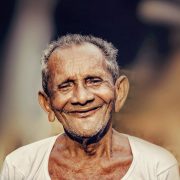International Centre for Justice and Human Rights - Unfair trials in the United Arab Emirates
Geneva, February 8, 2016
In the United Arab Emirates (UAE), there is a range of abuses, as trials are unfair or continually postponed and detainees are often subjected to torture or ill-treatment. Actually, many detainees like an Omani blogger, Muawiya Al-Rawahi, or the Libyans are facing this situation during the pre-trial, the trial and the post-trial, where their rights are regularly violated. The right to be presumed innocent until proved guilty according to UAE constitution in Article 28 seems to not real existing.
During the month of January, recent trials for each of Muawiya Rawahi and the Libyans businessmen, have been marred by numerous violations, among them:
- Almost all trials in UAE started by violations of fair trial standards, including the denial of legal assistance during pre-trial, and allegations of systematic torture. In fact, several victims are also subjected, for example, to a lack of a health report about torture, pre-trials exceeding deadlines, etc. It is worth noting that these trials do not respect conditions of a fair trial as recognized by several international treaties. Despite these international guarantees and safeguards, UAE continuously disregards the right of defendants.
- Although defendants deny charges against them, they do not have full access to their lawyers or to evidences against them. Sometimes, evidences obtained by torture are used to convict them whereas evidences obtained by torture should be excluded from trial according to rule of due process. Nevertheless, lawyers do not have full access to their clients and case files, and they do not have sufficient time to prepare their clients’ defense. Lawyers appointed by defendants could not find out what the charges their clients were facing until the trial as well. In the case concerning the Libyans, many things occurred that were not matched with the rights of the defendants. Among these, their lawyers had no access to the records and cases files until the trial session, the American and Canadian lawyers of Kamel and his son Mohamed Al darat and Salim Al aradi, were unable to attend the trial to monitor it, and Salim Alaradi, mentioned torture he faced, but the judge answered him that he will listen to him later. The international human rights law recognizes the right to have adequate time and facilities for the preparation of his/her defence and to communicate with counsel of his/her own choosing; to be informed, if he/her does not have legal assistance, of this right; and to have legal assistance assigned to him/her, in any case where the interests of justice so require, and without payment by him/her in any such case if he/she does not have sufficient means to pay for it.
- Another important problem concerns the prosecution of the case before the UAE Federal Supreme Court, which deprives the defendants of the right to appeal. Unfortunately, the Article 101 of the UAE Constitution stipulates, “the judgements of the Union Supreme Court shall be final and binding upon all”. That means, convictions and sentences of this Federal Supreme Court cannot be appealed to a higher court, whereas international human rights law guarantees the right to appeal and states that that everyone convicted of a crime shall have the right to his/her conviction and sentence being reviewed by a higher tribunal according to law.
Finally, the UAE failed to prohibit torture despite they had acceded to the UN Convention against torture and other cruel, inhuman or degrading treatment or punishment and its constitution which states in its Article 26 that “No person shall be subjected to torture or to degrading Treatment”
Because of growing of cases of unfair trials, the International Centre for Justice and Human Rights (ICJHR) is urgently calling UAE to:
- Immediately and unconditionally cancel unfair trials which violated international fair trial standards
- Exclude from trial any evidence obtained by torture or ill-treatment and order independent and impartial investigations into allegations of torture and other ill-treatment, and bring those responsible to account
- Protect all judicial guarantees and safeguards, including rights of defense ensuring a fair trial
- Show a health report and provide any medical treatment when requested
- Stop torture or pre-detentions exceeding deadlines
- Respect all its international obligations and commitments, specifically those made before the Human Rights Council in 2013
- Ratify the International Covenant on civil and political rights, the International Covenant on economic, social and cultural rights and the Protocols related
For more information, please contact us by email. [email protected]








